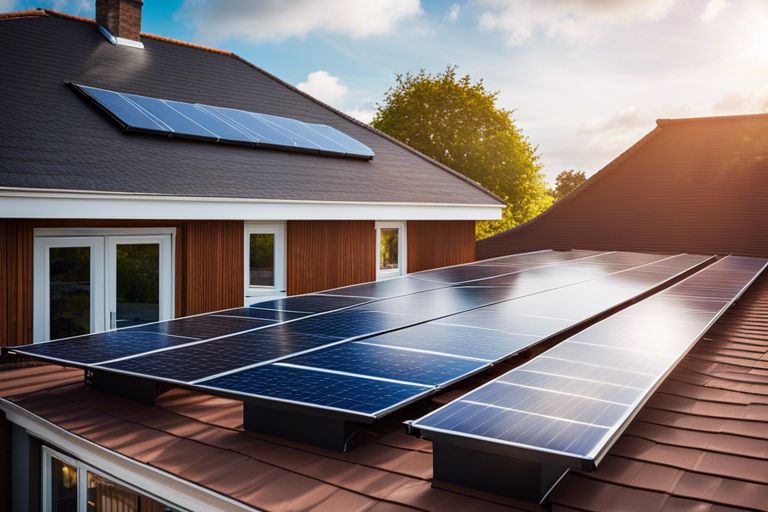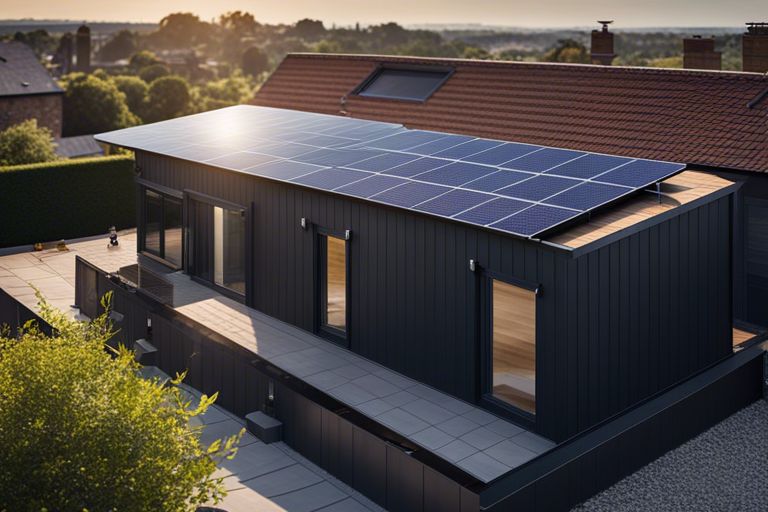
Is It Legal To Install Your Own Solar Panels in the UK?
Just like any other electrical work, installing solar panels in the UK has regulations that need to be followed to ensure safety and compliance with the law. This guide will walk you through the legalities of installing solar panels on your property in the UK, including the necessary permissions, certifications, and regulations you need to be aware of. By the end of this article, you will have a clear understanding of the legal requirements for installing your own solar panels in the UK.

Understanding the Legal Framework for Solar Panel Installation in the UK
National Regulations and Standards
For those considering installing solar panels in the UK, it is important to be aware of the national regulations and standards that govern such installations. Panel systems in the UK must comply with the Microgeneration Certification Scheme (MCS) standards to be eligible for government incentives such as the Feed-in Tariff.
Local Planning Permissions and Restrictions
Framework surrounding solar panel installation in the UK also involves local planning permissions and restrictions. Before installing solar panels, homeowners must consult with their local planning authority to ensure compliance with regulations. Restrictions may vary depending on the property’s location, such as being in a conservation area or a listed building.
National regulations also require that solar panel installations adhere to Building Regulations in England, Wales, and Scotland. These regulations cover aspects such as structural safety, fire safety, and energy efficiency. It is important to ensure that any solar panel installation meets these legal requirements to avoid any potential issues in the future.
How to Plan Your Solar Panel Installation Legally
Little planning goes a long way when it comes to installing solar panels on your property. Before you start the installation process, there are several factors to consider to ensure that your installation is legal and compliant with UK regulations.
Factors to Consider Before Installation
- Assess your property’s suitability for solar panels, including roof condition, angle, and shading.
- Check with your local council for any permits or planning permissions required for installation.
- Understand the Feed-in Tariff scheme and how it may impact your installation.
Thoroughly researching and considering these factors will help you avoid any legal issues down the line. Though hiring a professional installer is recommended, it is possible to install solar panels on your own if you adhere to regulations.
Tips for Compliant Installation
- Ensure all equipment meets UK safety and quality standards.
Installation of solar panels must comply with Building Regulations in the UK, which include requirements for structural integrity and wiring. The installation must also meet MCS (Microgeneration Certification Scheme) standards to qualify for incentives like the Feed-in Tariff. The best way to ensure compliance is to work with a certified installer.
To legally and efficiently install solar panels on your property, it is crucial to follow these planning steps and tips for compliant installation. By doing so, you can enjoy the benefits of renewable energy while adhering to all legal requirements in the UK.
DIY Solar Panel Installation Step-by-Step
Assessing Your Energy Needs and Solar Potential
Now, before you start your DIY solar panel installation, it’s crucial to assess your energy needs and the solar potential of your property. Determine how much electricity you consume daily and monthly, as this will help you determine the size of the solar panel system you need. Additionally, consider the amount of sunlight your property receives to ensure optimal solar energy production.
Materials, Tools, and Safety: What You Need to Know
You will need various materials and tools for your DIY solar panel installation project. Some of the key items include solar panels, mounting hardware, inverters, wiring, and safety equipment such as gloves, safety glasses, and a harness. It’s imperative to have a good understanding of these materials and tools to ensure a safe and successful installation.
You should also familiarise yourself with the safety precautions necessary for working with electricity and elevated surfaces. If you’re unsure about any aspect of the installation process, it’s recommended to seek professional help to avoid accidents or damage to your property.
Installation
Installation of solar panels involves mounting the panels on your roof or another suitable location, connecting the panels to an inverter to convert the DC power generated by the panels into AC power for use in your home, and then connecting the inverter to your electrical system. It’s important to follow the manufacturer’s instructions carefully and adhere to all safety guidelines throughout the installation process to ensure a safe and efficient system.
After Installation: Maintenance, Warranties, and Legal Compliance
Regular Maintenance Tips for Solar Panel Efficiency
Keep your solar panels efficient with regular maintenance. This includes cleaning the panels periodically to remove dust, dirt, and debris that can decrease their performance. Check for any shading issues from nearby trees or new construction that may impact sunlight exposure. Inspect the mounting system for any signs of wear or damage and ensure it remains secure. This proactive approach can help maximise your solar panel efficiency and prolong their lifespan.
- Regularly clean panels to remove dirt and debris
- Check for shading issues obstructing sunlight exposure
- Inspect mounting system for wear and tear
This will ensure that your solar panels continue to operate at their optimal level and generate maximum energy output. This regular maintenance routine can also help identify any potential issues early on and prevent costly repairs in the future.
Understanding Warranties and Ongoing Legal Obligations
Panel warranties are a necessary aspect of solar panel ownership. They typically cover equipment performance, ensuring that your panels meet the promised efficiency levels. It is crucial to understand the terms of your warranty, including the duration and what is included or excluded from coverage. Additionally, ongoing legal obligations, such as complying with building codes and regulations, must be maintained to ensure that your solar panel system remains in good standing.
Another important consideration is insurance coverage for your solar panels. While warranties may cover equipment failures, insurance can protect against other unforeseen events such as damage from severe weather or accidents. Be sure to review and understand all the warranties and legal obligations related to your solar panel system to protect your investment in the long run.
Summing up
With this in mind, it is legal to install your own solar panels in the UK as long as you comply with building regulations, safety standards, and notify your local council. It is recommended to work with a reputable installer who is MCS certified to ensure that the installation meets all the necessary requirements. By choosing to install solar panels on your property, you can not only save money on your energy bills but also contribute to a more sustainable future by generating clean, renewable energy.
FAQ
Q: Is it legal to install your own solar panels in the UK?
A: Yes, it is legal to install your own solar panels in the UK. However, there are certain current regulations and guidelines that must be followed to ensure complete compliance with building codes and safety standards.
Q: Do I need planning permission to install solar panels on my property?
A: In most cases, you do not need planning permission to install solar panels on your property. Permitted development rights allow for certain types of solar panel installations without the need for planning permission, but there are exceptions for listed buildings or properties located in conservation areas.
Q: What safety regulations should I be aware of when installing solar panels?
A: When installing solar panels, it is important to comply with safety regulations to prevent accidents and ensure the longevity of your system. This includes using qualified installers, following electrical safety standards, and securing permits and approvals as required.
Q: Can I connect my solar panels to the grid in the UK?
A: Yes, you can connect your own solar panels to the grid in the UK. The process involves coordinating with your energy provider to set up a feed-in tariff agreement, which allows you to sell excess electricity generated by your solar panels back to the grid.
Q: Are there any financial incentives for installing solar panels in the UK?
A: Yes, there are financial incentives available for installing solar panels in the UK. This includes the Smart Export Guarantee (SEG) scheme, which pays you for the electricity you export to the grid, as well as the Renewable Heat Incentive (RHI) for solar thermal installations. Additionally, you may be eligible for tax benefits and grants to help offset the cost of installation.
